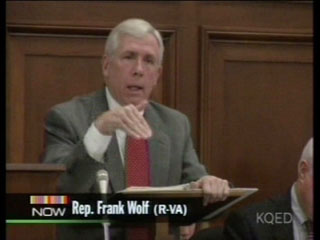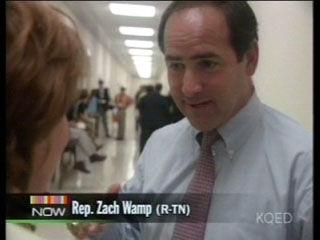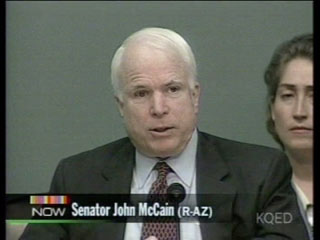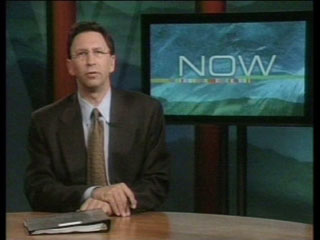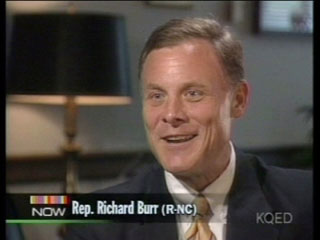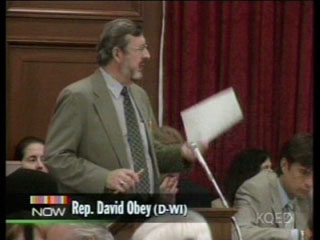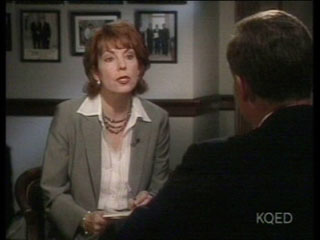The FCC is in the process of rewriting cable law. Unfortunately, what’s being “rewritten” is the writing off of PEG channels. PEG = Public, Education and Government Access Channels
As always, this comes to me at the last minute and there’s nothing we can do directly besides hassle our Congresspeople to hassle the FCC to leave PEGs alone:
Take 30 seconds right nowto use this form to write them.
Then get the phone numbers it gives you and phone them all and tell them to tell the FCC to “save the Public, Education and Government Channels.”
I sent my letters. Now I’ll call in the AM.
Now…what is all this really about? Well I hopped over to the FCC website to see what I could see, and it would appear, yes, ladies and gentlemen, we have another Regulatory “Review of the Commission’s Broadcast Ownership Rules and Other Rules Adopted Pursuant to Section 202 of the Telecommunications Act of 1996.”
word doc PDF
There’s a public meeting on Wednesday, December 20th where I guess the damage can
be done:
word doc PDF
I’m still reading through these docs now, trying to figure them out. This FCC stuff is such a drag…
Thanks for sending emails and making phonecalls Tuesday!
Category Archives: Media Consolidation
FCC OK’s Rupert Murdoch’s Purchase of DirecTV
FCC Approves Murdoch Purchase of DirecTV
By Frank Ahrens for the Washington Post.
The Federal Communications Commission and Justice Department today approved News Corporation Inc.’s purchase of Hughes Electronics Corp.’s DirecTV home satellite system, giving Rupert Murdoch the crucial missing piece of his global satellite empire.
By a vote of 3-2, the FCC commissioners allowed the $6.5 billion cash-and-stock purchase to go ahead with a number of conditions meant to keep News Corp. from using DirecTV as a lever to raise programming prices to rival cable and satellite companies. The merger gives News Corp. a controlling 34 percent interest in Hughes.
News Corp. is the parent company of the Fox television network, Fox News Channel, FX and Fox Sports regional cable channels. Opponents of the merger feared that News Corp. would raise its programming prices to cable rivals, such as Comcast Corp., or threaten to pull Fox programming in order to drive customers away from cable and to DirecTV.
The FCC ruled that the merger would improve service to DirecTV customers — News Corp. has a history of adding channels and features, such as interactivity, to its other satellite systems — would create a more muscular competitor to the cable industry, which has monopolies in most markets, and promote the agency’s goal of localism, by requiring News Corp. to add local channels to the DirecTV system.
FCC Chairman Michael K. Powell joined fellow Republican commissioners Kevin J. Martin and Kathleen Q. Abernathy in approving the deal.
Dissenting were Democratic FCC commissioners Michael J. Copps and Jonathan S. Adelstein. The commission has been split along party lines on media issues since the rancorous June vote adopting new media ownership rules.
Help Me Write My Term Paper On The FCC’s Process and New Media Ownership Rules
I’m writing a term paper for my Ethics class on whether Michael Powell followed all the correct procedures when he pushed through the New Media Ownership rules last June. I’m guessing that he followed everything to the letter of the law, but writing the paper will help me learn about what “the process” actually is and know for sure.
Please email me at lisarein@finetuning.com with any links or relevant articles you know of about this subject that you think would be useful to my research. I’ll be publishing the finished product here when I’m done.
Thanks!
Bill Moyers: Our Democracy is in Danger of Being Paralyzed
I just started reading this myself, but I’m about to go to dinner and I didn’t want to risk forgetting to get this up tonight. So here it is.
Update 10/14/03 – recordings of this speech are now available. I’ve also re-archived them here.
(Thanks, Mark!)
Bill Moyers’ Keynote Address to the National Conference on Media Reform
that the very concept of media is insulting to some of us within the press who find ourselves lumped in with so many disparate elements, as if everyone with a pen, a microphone, a camera, or just a loud voice were all one and the same.
Senate Stands Up To Shrub Administration And Adopts Resolution To Roll Back New FCC Media Ownership Rules
Senate Defies Bush, Overturns FCC Ruling
In Reuters.
The Republican-led U.S. Senate on Tuesday defied Bush administration opposition and voted to rescind new regulations allowing large media companies to grow even bigger.
The Senate approved, 55-40, a resolution that would roll back the Federal Communications Commission rules allowing television networks to own more local stations and permitting conglomerates to own a newspaper, television stations and radio outlets in a single market.
The measure faces a tougher battle in the U.S. House of Representatives and a threat of a veto by President Bush if it reaches his desk.
The Republican-led FCC narrowly adopted the new rules in June, which would allow television networks to own local stations that collectively reach 45 percent of the national audience, up from 35 percent.
The new rules permit one company to own a newspaper, a television station and several radio stations in a single market, lifting a decades-old ban on cross-ownership. A company would also be permitted to own two local television stations in more local markets.
A Note From Bobby Re: FCC’s Media Ownership Changes
Dear People,
For a long time, I’ve wanted to find some way to spread the word about issues I care about and let people know that there are simple ways to get involved and make a difference. So, as long as Lisa is willing to let me be a guest blogger, I see my mission as, not only to alert you to issues I care about but to provided ways you can DO SOMETHING ABOUT IT.
So here’s todays concern:
I’m on the Moveon.org mailing list http://Moveon.org. They just sent a letter letting me know that their campaign to roll back the FCC’s recent rules changes needs everyone’s help and I thought I’d pass on their concerns to those of you not already on their mailing list. They need to put more pressure on the Senate in the next few days to get them to vote to roll back the recent FCC’s changes that would allow a few big companies to control our country’s airways.
So far their campaign efforts have been able to make our legislators rethink an issue big media thought they had in their pocket. Even if you’ve signed something before, now is a critical time to stand up and oppose their attempts to grab the public airways for their own. So, if you care about the issue too, please join me and other Moveon members in letting Congress know now by signing their petition at:
http://www.moveon.org/stopthefcc/
The letter they asked me to send to all my friends reads as follows (with slight modification by me ;-):
Later this week or early next week, the Senate will likely take up its last major vote on media reform, and it’ll be very close. After a grassroots groundswell tipped the balance toward rolling back the FCC rule change that would allow greater media concentration, lobbyists from big media conglomerates have been working around the clock to tip it back.
On Wednesday, MoveOn.org will be holding a crucial press conference with Senator Dorgan (D-ND) and Senator Snowe (R-ME) and groups across the political spectrum to highlight the broad opposition to the FCC rule change. MoveOn needs to show that over 100,000 people have voiced their demand that the Senate vote to roll back the rule change. Please help us reach 100,000 signers by this Wednesday — you can join us in signing at:
http://www.moveon.org/stopthefcc/
Together, we can make sure that America’s media is diverse, competitive, and balanced.
The final steps: Volunteer: We need your help. If you have some time to give, press here.
Donate: If you can’t give time, can you make a financial contribution to support this campaign?
Thanks for the support,
Bobby Lilly
More Details From City of San Jose’s Counsel On The Comcast v. City of San Jose Suit
This is a follow up to this clip from Bill Moyers now where William Lowery is interviewed.
William Lowery was nice enough to provide me with some more information about the details of the case. Please spread the word about this. People need to know that their public access facilities and programming are at stake. However this case turns out will provide a model for the rest of the cable companies for what they can get away with (not living up to their community obligations).
Ok, Lisa — I’ll try to explain it with as little legaleese as possible.
Essentially, under the Communications Act, cable televisions are regulated at both the federal and local level. Local governments issue franchises to cable companies which allow the operators to construct and operate their systems in the public rights-of-way within the jurisdiction. The franchises are for a given number of years — usually for 10 -15 years. When those franchise expire, they must be renewed. The Cable Act provides two mechanisms for franchise renewal: informal negotiations, and a formal, administrative process.
In the formal process, a city, after conducting an assesment of its future cable-related needs and interests, may issue a Request for Renewal Proposals (RFRP) which sets forth those needs and interests and minimum requirements for a proposal that meet those needs and interests. The Cable Act authorizes a city to require, among other things, channels, facilities, and equipment for public, educational, and govermental (PEG) use. In addition, the Act permits a City to require capacity on an “institutional network” which the City can use for governmental and educational communications.
Once a city issues an RFRP, the operator must then submit a formal renewal proposal. The city the, after assessing the proposal, must either grant renewal or issue a “preliminary assessment of denial” and commence an administrative hearing to determine whether, among other things, the proposal is reasonable in light of the identified needs and interests, taking into account the costs of meeting those needs.
In San Jose, the cable franchisee was owned by TCI when the initial renewal period began. TCI was subsequently acquired by AT&T, and then AT&T was acquired by Comcast. The City spent almost 4 years trying to reach agreement on renewal terms through informal negotiations, but the negotiation were ultimately unsuccessful. The City then issued an RFRP, which AT&T responded to by submitting a formal proposal. Subsequently, Comcast took over. The City ultimately issued a preliminary assessment of denial, and commenced the formal administrative hearing. Comcast then brought suit, claiming that the many of the requirements of the City’s RFRP violate the Cable Act, and therefore Comcast’s First Amendment rights, because they exceed the City’s authority under the Act. Specifically, Comcast complains that the “institutional network” the City describes in the RFRP is beyond the scope of what the Act authorizes, and the PEG requirements exceed what is contemplated by the Act. Comcast also claims that the City’s administrative proceedure violates its due process rights. Comcast brought a motion for preliminary injunction seeking to halt the City’s process.
Court Issues Stay On Media Ownership Rules!
Court Delays FCC Media Ownership Rules
Federal Appeals Court Delays Implementation of New FCC Media Ownership Rules
By the Associated Press.
A federal appeals court issued an emergency stay Wednesday delaying new Federal Communications Commission media ownership rules that would allow a single company to own newspapers and broadcast outlets in the same city.
The 3rd U.S. Circuit Court of Appeals said a coalition of media access groups called the Prometheus Radio Project would suffer irreparable harm if the new rules were allowed to go into effect as scheduled Thursday.
Michael Powell Talks Back
New Rules, Old Rhetoric
By Michael K. Powell for The NY Times.
Some say the problem is media concentration, and point out that only five companies control 80 percent of what we see and hear. In reality, those five companies own only 25 percent of more than 300 broadcast, satellite and cable channels, but because of their popularity, 80 percent of the viewing audience chooses to watch them. Popularity is not synonymous with monopoly. A competitive media marketplace must be our fundamental goal, but do we really want government to regulate what is popular?
Republicans Voting With Their Consciences And Their Constituencies — The Scoop On Overturning The FCC’s New Media Ownership Rules
This is the show that aired July 25, 2003 at 10:00 pm PST.
Bill Moyers NOW did a great story Friday night (July 25, 2003) about what’s been going on over on Capitol Hill the last two weeks regarding the FCC’s New Media Ownership Rules. Rep. Richard Burr (R-NC) and Rep. Frank Wolf (R-VA) and Rep Zack Wamp (R-TN) are three of the many Republicans that have decided to go against the wishes of the White House and voted 400 to 21 in favor of reversing the new rules. Rep. David Obey (D-WI) was the Congressman who created the Bill that was passed last week by the House.
Bill Moyers NOW – Changing Channels – ALL (Small – 25 MB)
Bill Moyers NOW – Changing Channels – Part 1 of 2 (Small – 13 MB)
Bill Moyers NOW – Changing Channels – Part 2 of 2 (Small – 13 MB)
Credits:
Senior Washington Correspondent: Roberta Baskin.
Producer: Katie Pitra
Editor: Alison Amron
I transcribed this from the video:
The forces in favor of big media were gathering. Just hours before the vote on Obey’s Amendment, seventy General Managers from television stations owned by the four networks met for breakfast on Capitol Hill. They had been recruited by their parent companies to come to Washington and lobby congress to support the FCC. Curiously, with all these TV executives in one room, only our camera was there to record it.
And down in the halls, the Republican Congressman were being pressured to support the new FCC rule change. Especially from their own leadership.
“I was heading for an elevator that Chairman Billy Tauzin was getting on. I sneaked around the corner and went down three flights of stairs to avoid the elevator ride with Chairman Tauzin, because he would’ve had me boxed in that elevator and I was able to stand my ground and vote my conscience without, face to face, having the kind of pressure that he would have exerted.” — Rep Zack Wamp (R-TN).
“I didn’t get elected here so I can be a potted plant and I don’t really care what the White House thinks about some of these issues. My conscience is what I will report to when I reach the end of my days. Not to anybody downtown.” — Frank Wolf.
